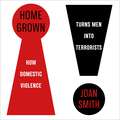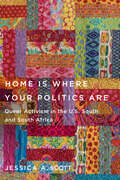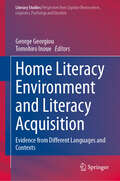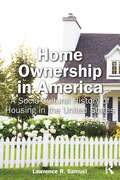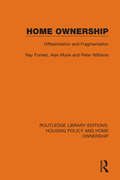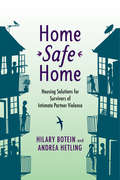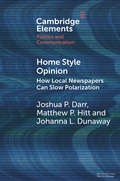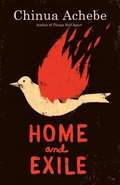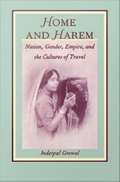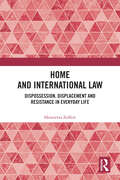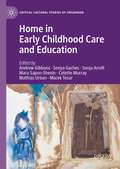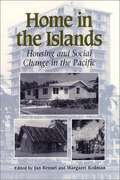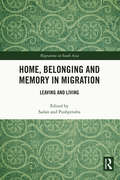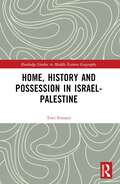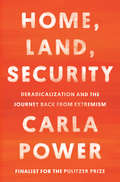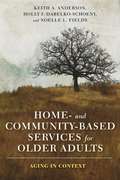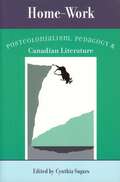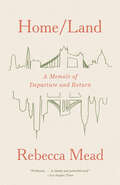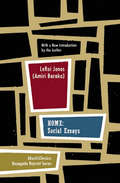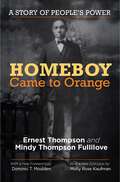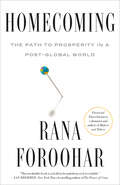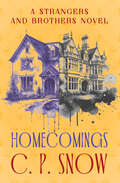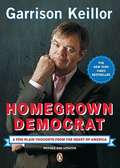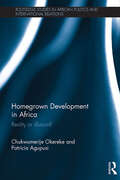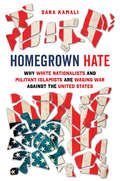- Table View
- List View
Home Grown: How Domestic Violence Turns Men Into Terrorists
by Joan SmithWhat do the attacks in London Bridge, Manchester and Westminster have in common with those at the Charlie Hebdo offices, the Finsbury Park Mosque attack and multiple US shootings? They were all carried out by men with histories of domestic violence.TERRORISM BEGINS AT HOME. Terrorism is seen as a special category of crime that has blinded us to the obvious - that it is, almost always, male violence. The extraordinary link between so many tragic recent attacks is that the perpetrators have practised in private before their public outbursts. In these searing case studies, Joan Smith, feminist and human rights campaigner, makes a compelling and persuasive argument for a radical shift in perspective. Incomprehensible ideology is transformed through her clear-eyed research into a disturbing but familiar pattern.From the Manchester bomber to the Charlie Hebdo attackers, from angry white men to the Bethnal Green girls, from US school shootings to the London gang members who joined ISIS, Joan Smith shows that, time and time again, misogyny, trauma and abuse lurk beneath the rationalizations of religion or politics. Until Smith pointed it out in 2017, criminal authorities missed this connection because violence against women is dangerously normalised. Yet, since domestic abuse often comes before a public attack, it's here a solution to the scourge of our age might be found. Thought-provoking and essential, Home-Grown will lift the veil on a revelatory truth.(P)2019 Quercus Editions Limited
Home Is Where Your Politics Are: Queer Activism in the U.S. South and South Africa
by Jessica A. ScottHome Is Where Your Politics Are is a transnational consideration of queer and trans activism in the US South and South Africa. Through ethnographic exploration of queer and trans activist work in both places, Jessica Scott paints a vibrant picture of what life is like in relation to a narrative that says that queer life is harder, if not impossible, in rural areas and on the African continent. The book asks questions like, what do activists in these places care about and how do stories about where they live get in the way of the life they envision for the queer and trans people for whom they advocate? Answers to these questions provide insight that only these activists have, into the complexity of locally based advocacy strategies in a globalized world.
Home Literacy Environment and Literacy Acquisition: Evidence from Different Languages and Contexts (Literacy Studies #26)
by George Georgiou Tomohiro InoueThis book provides a comprehensive and up-to-date overview of the literature on home literacy environment and its association with literacy skills in different languages and contexts. Home literacy environment (HLE), an umbrella term that encompasses various activities parents engage in with their children, has been studied extensively by psychologists, linguists, behavioral geneticists, and educators. However, no systematic effort has been put into synthesizing this growing body of research in a coherent manner, making it difficult for researchers and various stakeholders to understand the key points of past research while keeping up with the latest research findings. To address this need, the first part of the book provides an overview of the current literature on conceptualizations of HLE, covering prominent theoretical models, the measurement of HLE, the potential extension and generalizability of models across contexts, the intersections between home learning environment in literacy, numeracy, and other domains, and the genetic and environmental etiology of literacy development The second section of the book hosts a wide variety of studies from all over the world, conducted in English-speaking countries (UK, U.S., Canada), Finland, Greece, Turkey, China, Japan, the Philippines and other Southeast Asian countries, and Chile and other Latin American and Caribbean countries, while it includes chapters with both typically-developing children and children at familial risk of dyslexia. The third section of this book offers a comprehensive collection of chapters on intervention studies examining the role of family literacy programs, dialogic reading, and onscreen digital access. Together, the 22 chapters of this book elucidate the complex nature of HLE and provide future research directions and instructional recommendations on how parents and policymakers can improve home literacy practices around the world. As such, this book is valuable for researchers, educators, and other professionals, and the readership ranges from graduate students and scholars to parents and policymakers.
Home Ownership in America: A Socio-Cultural History of Housing in the United States
by Lawrence SamuelA wide-ranging cultural history centered around the concepts of real estate, the family home, and the American dream, and how they evolved over the years, Home Ownership in America: A Socio-Cultural History of Housing in the United States traces narratives around home ownership from the 1920s to today.As a product of the emergence of a large middle class during the Roaring Twenties, the modern concept of home ownership continued through the shaky Great Depression years, holding pattern of World War II, and glory days of the postwar era, when home ownership became a reality for much of the White middle class. While the late 1960s and 1970s were difficult years for home ownership as the postwar economic engine ran out of steam, a renaissance took place in the 1980s and 1990s due to tens of millions of baby boomers wanting to nest. Although there have been a few bumps in the road over the last couple of decades, home ownership, or at least the pursuit of it, is once again booming, making the subject as relevant as ever.With the single-family home central to the American idea and experience, this book touches on a host of issues related to our social divisions of race, gender, and class. Home Ownership in America is a truly interdisciplinary study, crossing over into a wide variety of subjects including sociology, family, urban history/planning, suburban studies, the built environment, public policy, business, finance, economics, politics, architecture, design, technology, and popular and consumer culture.
Home Ownership: Differentiation and Fragmentation
by Peter Williams Alan Murie Ray ForrestOriginally published in 1990 and drawing on extensive research, this book provides an evaluation of the impact of the growth of home ownership in the UK, and of the claims and counter-claims made for its social significance. The book examines critically the evidence for and against the proposition that mass home ownership is contributing towards a more equal society. Wide-ranging in its coverage, the book discusses the changing nature and role of home ownership, wealth accumulation and housing, the relationship between social class and housing tenure, and policy development.
Home Safe Home: Housing Solutions for Survivors of Intimate Partner Violence
by Andrea Hetling Carol Corden Hilary BoteinHousing matters for everyone, as it provides shelter, security, privacy, and stability. For survivors of intimate partner violence (IPV), housing takes on an additional meaning; it is the key to establishing a new life, free from abuse. IPV survivors often face such inadequate housing options, however, that they must make excruciating choices between cycling through temporary shelters, becoming homeless, or returning to their abusers. Home Safe Home offers a multifaceted analysis that accounts for both IPV survivors' needs and the practical challenges involved in providing them with adequate permanent housing. Incorporating the varied perspectives of the numerous housing providers, activists, policymakers, and researchers who have a stake in these issues, the book also lets IPV survivors have their say, expressing their views on what housing and services can best meet their short and long-term goals. Researchers Hilary Botein and Andrea Hetling not only examine the federal and state policies and funding programs determining housing for IPV survivors, but also provide detailed case studies that put a human face on these policy issues. As it traces how housing options and support mechanisms for IPV survivors have evolved over time, Home Safe Home also offers innovative suggestions for how policymakers and advocates might work together to better meet the needs of this vulnerable population.
Home Style Opinion: How Local Newspapers Can Slow Polarization (Elements in Politics and Communication)
by Matthew P. Hitt Johanna L. Dunaway Joshua P. DarrLocal newspapers can hold back the rising tide of political division in America by turning away from the partisan battles in Washington and focusing their opinion page on local issues. When a local newspaper in California dropped national politics from its opinion page, the resulting space filled with local writers and issues. We use a pre-registered analysis plan to show that after this quasi-experiment, politically engaged people did not feel as far apart from members of the opposing party, compared to those in a similar community whose newspaper did not change. While it may not cure all of the imbalances and inequities in opinion journalism, an opinion page that ignores national politics could help local newspapers push back against political polarization.
Home and Exile
by Chinua AchebeMore personally revealing than anything Achebe has written, "Home and Exile"--the great Nigerian novelist's first book in more than ten years--is a major statement on the importance of stories as real sources of power, especially for those whose stories have traditionally been told by outsiders. In three elegant essays, Achebe seeks to rescue African culture from narratives written about it by Europeans. Looking through the prism of his experiences as a student in English schools in Nigeria, he provides devastating examples of European cultural imperialism. He examines the impact that his novel "Things Fall Apart" had on efforts to reclaim Africa's story. And he argues for the importance of writing and living the African experience because, he believes, Africa needs stories told by Africans.
Home and Harem: Nation, Gender, Empire, and the Cultures of Travel
by Inderpal GrewalMoving across academic disciplines, geographical boundaries, and literary genres, Home and Harem examines how travel shaped ideas about culture and nation in nineteenth-century imperialist England and colonial India. Inderpal Grewal's study of the narratives and discourses of travel reveals the ways in which the colonial encounter created linked yet distinct constructs of nation and gender and explores the impact of this encounter on both English and Indian men and women. Reworking colonial discourse studies to include both sides of the colonial divide, this work is also the first to discuss Indian women traveling West as well as English women touring the East. In her look at England, Grewal draws on nineteenth-century aesthetics, landscape art, and debates about women's suffrage and working-class education to show how all social classes, not only the privileged, were educated and influenced by imperialist travel narratives. By examining diverse forms of Indian travel to the West and its colonies and focusing on forms of modernity offered by colonial notions of travel, she explores how Indian men and women adopted and appropriated aspects of European travel discourse, particularly the set of oppositions between self and other, East and West, home and abroad. Rather than being simply comparative, Home and Harem is a transnational cultural study of the interaction of ideas between two cultures. Addressing theoretical and methodological developments across a wide range of fields, this highly interdisciplinary work will interest scholars in the fields of postcolonial and cultural studies, feminist studies, English literature, South Asian studies, and comparative literature.
Home and International Law: Dispossession, Displacement and Resistance in Everyday Life
by Henrietta ZeffertThis book is about home and international law. More specifically, it is about the profound, and frequently devastating, transformations of home that are happening almost everywhere in the world today and what international law has to do with them. Through three stories of home – the desert home, the lake home and the city home – this book traces how the everyday operations of international law shape the material, affective and imaginative experience of home. It argues that international law’s ‘homemaking work’ is characterised by acts of domination, practices of resistance and the production of unhomely spaces. However, the book also considers whether and how the liberatory potential of international law could be unlocked through the metaphor of home. This book draws from fieldwork conducted by the author in Palestine, Cambodia and the United Kingdom. It takes a global socio-legal approach to home and international law, informed by feminist political theory, feminist geography, home studies and contemporary critical approaches to international law. It is the first academic work to examine the relationship between home and international law. This book’s global socio-legal approach to home and international law will be of interest to those teaching and studying in international law, socio-legal studies, legal pluralism and legal geography.
Home in Early Childhood Care and Education: Conceptualizations and Reconfigurations (Critical Cultural Studies of Childhood)
by Mara Sapon-Shevin Marek Tesar Mathias Urban Andrew Gibbons Sonja Arndt Colette Murray Sonya GachesThis edited volume investigates the effects of shifting configurations and conceptualizations of the experience and meaning of home as it is embodied in early childhood care and education (ECCE). As the globalized early learning agenda drives more children to attend ECCE institutions, these institutions increasingly employ the concept of home through their curriculum and daily operations by attempting to foster a homelike environment or by incorporating items from children's homes into play. Chapters seek to recognize the complexity of a concept that is often taken for granted by exploring ways of being and thinking that share an interest in the notion of home. Authors offer multiple lenses and approaches to make sense of home as a conceptual space that operates in complex and often interrelated ways, including as an intellectual space, a built environment, a disciplinary technology, and a threshold.
Home in the Islands: Housing and Social Change in the Pacific
by Jan Rensel Margaret RodmanDiscussing changes in housing from remote islands to urban environments in the Pacific.
Home, Belonging and Memory in Migration: Leaving and Living (Migrations in South Asia)
by Pushpendra SadanThis volume explores ideas of home, belonging and memory in migration through the social realities of leaving and living. It discusses themes and issues such as locating migrant subjectivities and belonging; sociability and wellbeing; the making of a village; bondage and seasonality; dislocation and domestic labour; women and work; gender and religion; Bhojpuri folksongs; folk music; experience; and the city to analyse the social and cultural dynamics of internal migration in India in historical perspectives. Departing from the dominant understanding of migration as an aberration impelled by economic factors, the book focuses on the centrality of migration in the making of society. Based on case studies from an array of geo-cultural regions from across India, the volume views migrants as active agents with their own determinations of selfhood and location. Part of the series Migrations in South Asia, this book will be useful to scholars and researchers of migration studies, refugee studies, gender studies, development studies, social work, political economy, social history, political studies, social and cultural anthropology, exclusion studies, sociology, and South Asian Studies.
Home, History and Possession in Israel-Palestine (Routledge Studies in Middle Eastern Geography)
by Tovi FensterTaking a micro-geographical approach to Israeli-Palestinian relations, this book analyses the history of space and place in West Jerusalem and Jaffa in the context of specific addresses.Based on the unique and innovative ‘archaeology of addresses’ methodology, the book provides an in-depth analysis of 11 specific sites. This ‘micro’ perspective – paying particular attention to the history and past ownership of an individual property – allows the author to draw new insights into the process of ‘population exchange’ that took place in 1948 when Jewish people began to populate Palestinian deserted homes after the Nakba. By looking at archival planning documents, the histories of addresses as ‘contact zones’ between previous and current owners are revealed. Moreover, the research on each address highlights new theoretical understandings, encompassing: the micro-politics of the contact zone; mediated agonism; ruinations and beginnings; creative destruction in urban planning; the right to the city and the right to return; the violence of property; and fragmented settler colonialism. The book concludes by proposing practical applications of the research in teaching and planning practice.The book will prove important reading for students and researchers interested in urban planning, Middle Eastern geography, and the history of the Israeli-Palestinian conflict.
Home, Land, Security: Deradicalization and the Journey Back from Extremism
by Carla PowerA &“provocative and deeply reported look into the emerging field of deradicalization&” (Esquire), told through the stories of former militants and the people working to bring them back into society, from National Book Award and Pulitzer Prize finalist Carla Power What are the roots of radicalism? Journalist Carla Power came to this question well before the January 6, 2021, attack in Washington, D.C., turned our country&’s attention to the problem of domestic radicalization. Her entry point was a different wave of radical panic—the way populists and pundits encouraged us to see the young people who joined ISIS or other terrorist organizations as simple monsters. Power wanted to chip away at the stereotypes by focusing not on what these young people had done but why: What drew them into militancy? What visions of the world—of home, of land, of security for themselves and the people they loved—shifted their thinking toward radical beliefs? And what visions of the world might bring them back to society? Power begins her journey by talking to the mothers of young men who&’d joined ISIS in the UK and Canada; from there, she travels around the world in search of societies that are finding new and innovative ways to rehabilitate former extremists. We meet an American judge who has staked his career on finding new ways to handle terrorist suspects, a Pakistani woman running a game-changing school for former child soldiers, a radicalized Somali American who learns through literature to see beyond his Manichean beliefs, and a former neo-Nazi who now helps disarm white supremacists. Along the way Power gleans lessons that get her closer to answering the true question at the heart of her pursuit: Can we find a way to live together? An eye-opening, page-turning investigation, Home, Land, Security speaks to the rise of division and radicalization in all forms, both at home and abroad. In this richly reported and deeply human account, Carla Power offers new ways to overcome the rising tides of extremism, one human at a time.
Home- and Community-Based Services for Older Adults: Aging in Context
by Keith Anderson Holly Dabelko-Schoeny Noelle FieldsAs older adults and their families opt out of nursing homes, a range of home and community-based services (HCBS) have risen up to provide care. HCBS span platforms and approaches, from home health care to assisted living to community-based hospice to adult day services. These models are, for most, preferable to nursing homes and allow older adults to “age in place”—live longer in their own homes and communities. Home- and Community-Based Services for Older Adults examines the existing and emerging models of HCBS, including the history, theory, research, policy, and practices across care settings. Emphasizing the multidisciplinary and interprofessional practice approaches used to deliver care, this book is an essential learning tool for students interested in medicine, nursing, social work, allied health professions, case management, health care administration, and gerontology. As the population of older adults grows, the authors ask, how can we best meet the needs of older adults and their families in the most effective, cost-conscious way while honoring their care choices?
Home-Work: Postcolonialism, Pedagogy, and Canadian Literature (Reappraisals: Canadian Writers)
by Cynthia SugarsCanadian literature, and specifically the teaching of Canadian literature, has emerged from a colonial duty to a nationalist enterprise and into the current territory of postcolonialism. From practical discussions related to specific texts, to more theoretical discussions about pedagogical practice regarding issues of nationalism and identity, Home-Work constitutes a major investigation and reassessment of the influence of postcolonial theory on Canadian literary pedagogy from some of the top scholars in the field. Published in English.
Home/Land: A Memoir of Departure and Return
by Rebecca MeadA moving reflection on the complicated nature of home and homeland, and the heartache and adventure of leaving an adopted country in order to return to your native land—this is a &“winsome memoir of departure and reversal . . . about the way a series of unknowns accrue into a life&” (Jia Tolentino, author of Trick Mirror).When the New Yorker writer Rebecca Mead relocated to her birth city, London, with her family in the summer of 2018, she was both fleeing the political situation in America and seeking to expose her son to a wider world. With a keen sense of what she&’d given up as she left New York, her home of thirty years, she tried to knit herself into the fabric of a changed London. The move raised poignant questions about place: What does it mean to leave the place you have adopted as home and country? And what is the value and cost of uprooting yourself? In a deft mix of memoir and reportage, drawing on literature and art, recent and ancient history, and the experience of encounters with individuals, environments, and landscapes in New York City and in England, Mead artfully explores themes of identity, nationality, and inheritance. She recounts her time in the coastal town of Weymouth, where she grew up; her dizzying first years in New York where she broke into journalism; the rich process of establishing a new home for her dual-national son in London. Along the way, she gradually reckons with the complex legacy of her parents. Home/Land is a stirring inquiry into how to be present where we are, while never forgetting where we have been.
Home: Social Essays (AkashiClassics: Renegade Reprint Series)
by Leroi Jones"Jones/Baraka usually speaks as a Negro--and always as an American. He is eloquent, he is bold. He demands rights--not conditional favors."--The New York Times Book ReviewIn 2007, Akashic Books ushered Amiri Baraka back into the forefront of America's literary consciousness with the short story collection Tales of the Out & the Gone. This reissue features a highly provocative and profoundly insightful collection of 1960s social and political essays.LeRoi Jones (now known as Amiri Baraka) is the author of numerous books of poetry, fiction, and nonfiction. He was named Poet Laureate of New Jersey by the New Jersey Commission on Humanities, from 2002-2004. His most recent book, Tales of the Out & the Gone (Akashic Books, 2007), was a New York Times Editors' Choice. He lives in Newark, New Jersey.
Homeboy Came to Orange: A Story of People's Power
by Ernest Thompson Mindy Thompson FulliloveThe story of a union organizer who found a second career in community organizing and helped a Jim Crow city become a better place. Ernest Thompson dedicated his life to organizing the powerless. This lively, illustrated personal narrative of his work shows the great contribution that people’s coalitions can make to the struggle for equality and freedom. Thompson cut his teeth organizing one of the great industrial unions, the United Electrical Radio and Machine Workers of America, and brought his organizing skills and commitment to coalition building to Orange, New Jersey. He built a strong organization and skillfully led fights for school desegregation, black political representation, and strong government in a city he initially thought of as a “dirty Jim Crow town going nowhere.” Thompson came to love the City of Orange and its caring citizens, seeing in its struggles a microcosm of America. This story of people’s power is meant for all who struggle for human rights, economic opportunity, decent housing, effective education, and a chance for children to have a better life. Ernest Thompson (1906-1971) grew up on the Eastern Shore of Maryland, on a farm that had been given to his family at the end of the Civil War. The family was very poor and oppressed by racist practices. Thompson was determined to get away and to obtain power. He migrated to Jersey City, where he became part of the union organizing movement that built the Congress of Industrial Unions (CIO). He became the first African American to hold a fulltime organizing position with his union, the United Electrical Radio and Machine Workers of America (UE). He eventually headed UE’s innovative Fair Employment Practices program and fought for equal rights and pay for women and minority workers. Thompson also helped build the National Negro Labor Council, 1951-1956, and served as its director of organizing. In 1956, under the onslaught of the McCarthy era, UE was split in two, and Thompson lost his job. His wife, Margaret Thompson, brought the local school segregation to his attention. Ernie “Home” Thompson organized to desegregate the regional schools, building strong coalitions and political power for the black community that ultimately served all the people of Orange.
Homecoming: The Path to Prosperity in a Post-Global World
by Rana ForooharA sweeping case that a new age of economic localization will reunite place and prosperity, putting an end to the last half century of globalization—by one of the preeminent economic journalists writing today&“This invaluable book is as bold in its ambitions as it is readable.&”—Ian Bremmer, New York Times bestselling author of The Power of CrisisAt the dawn of the twenty-first century, Thomas Friedman, in The World Is Flat, declared globalization the new economic order. But the reign of globalization as we&’ve known it is over, argues Financial Times columnist and CNN analyst Rana Foroohar, and the rise of local, regional, and homegrown business is now at hand. With bare supermarket shelves and the shortage of PPE supplies, the pandemic brought the fragility of global trade and supply chains into stark relief. The tragic war in Ukraine and the political and economic chaos that followed have further underlined the vulnerabilities of globalization. The world, it turns out, isn&’t flat—in fact, it&’s quite bumpy. This fragmentation has been coming for decades, observes Foroohar. Our neoliberal economic philosophy of prioritizing efficiency over resilience and profits over local prosperity has produced massive inequality, persistent economic insecurity, and distrust in our institutions. This philosophy, which underpinned the last half century of globalization, has run its course. Place-based economics and a wave of technological innovations now make it possible to keep operations, investment, and wealth closer to home, wherever that may be. With the pendulum of history swinging back, Homecoming explores both the challenges and the possibilities of this new era, and how it can usher in a more equitable and prosperous future.
Homecomings (The Strangers and Brothers Novels)
by C.P. SnowAn emotionally devastated widower is drawn to a married woman in this &“impressive&” novel set in wartime England (Kirkus Reviews). Lewis Eliot has lost his deeply troubled wife, Sheila, under tragic circumstances. While her suicide has shaken Lewis to his core, it has also put an end to a painful and difficult marriage. In the wake of Sheila&’s passing and Britain entering the Second World War, Lewis plunges into his civil service work. During this time, he meets Margaret and begins to feel his heart stirring—and sees the possibility of healing. But Margaret already has a husband, severely complicating the attraction they both feel, in this series of historical novels that the Telegraph called &“Balzacian masterpieces of the age.&” &“A master craftsman in fiction.&” —The New York Times &“An extremely shrewd observer of men and society.&” —Commentary
Homegrown Democrat
by Garrison KeillorIn a book that is at once deeply personal and intellectually savvy, Homegrown Democrat is a celebration of liberalism as the "politics of kindness. " In his inimitable style, Keillor draws on a lifetime of experience amongst the hardworking, God-fearing people of the Midwest and pays homage to the common code of civic necessities that arose from the left: Protect the social compact. Defend the powerless. Maintain government as a necessary force for good. As Keillor tells it, these are articles of faith that are being attacked by hard-ass Republican tax cutters who believe that human misery is a Dickensian fiction. In a blend of nostalgic reminiscence, humorous meditation, and articulate ire, Keillor asserts the values of his boyhood--the values of Lake Wobegon--that do not square with the ugly narcissistic agenda at work in the country today. A thoughtful, wonderfully written book, Homegrown Democrat is Keillor's love letter to liberalism, the older generation, John F. Kennedy, the University of Minnesota, and the yellow-dog Democrat city of St. Paul that is sure to amuse and inspire Americans just when they need it most.
Homegrown Development in Africa: Reality or illusion? (Routledge Studies in African Politics and International Relations #2)
by Chukwumerije Okereke Patricia AgupusiInternationally driven development programmes have not been entirely successful in transforming the economic status of African countries. Since the late 1990s many African countries have started to take initiatives to develop an integrated framework that tackles poverty and promotes socio-economic development in their respective countries. This book provides a critical evaluation of ‘homegrown’ development initiatives in Africa, set up as alternatives to externally sponsored development. Focusing specifically on Ghana, Nigeria, South Africa and Kenya, the book takes a qualitative and comparative approach to offer the first ever in-depth analysis of indigenous development programmes. It examines: How far African states have moved towards more homegrown development strategies. The effects of the shift towards African homegrown socio-economic development strategies and the conditions needed to enhance their success and sustainability. This book will be of interest to students and scholars of development studies, international politics, political economy, public policy and African politics, sociology and economics.
Homegrown Hate: Why White Nationalists and Militant Islamists Are Waging War against the United States
by Sara KamaliTo better understand current events and threats, this book outlines the organizations and beliefs of domestic terrorists in the United States and how to counter their attacks on American democracy. Who are the American citizens—White nationalists and militant Islamists—perpetrating acts of terrorism against their own country? What are their grievances and why do they hate? How can this transnational peril be effectively addressed? Homegrown Hate is a groundbreaking and deeply researched work that directly compares White nationalists and militant Islamists in the United States. In this timely book, scholar and holistic justice activist Sara Kamali examines these Americans’ self-described beliefs, grievances, and rationales for violence, and details their organizational structures within a transnational context. She presents compelling insight into the most pressing threat to homeland security not only in the United States, but in nations across the globe: citizens who are targeting their homeland according to their respective narratives of victimhood. She also explains the hate behind the headlines and provides the tools to counter this hate from within, cogently offering hope in uncertain and divisive times. Innovative and engaging, this is an indispensable resource for all who cherish equity and justice in the United States and around the world.
